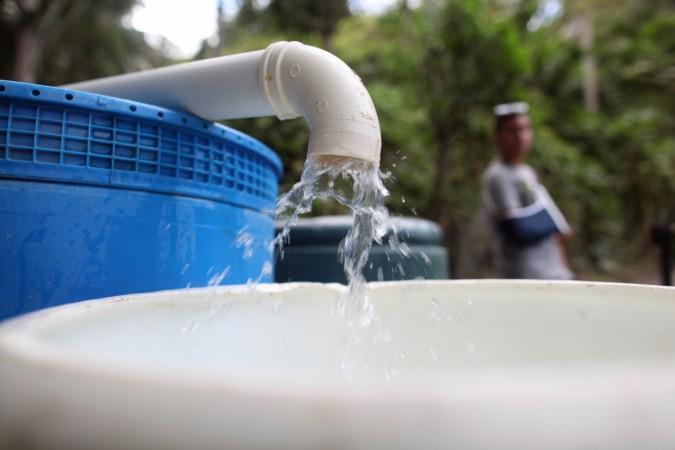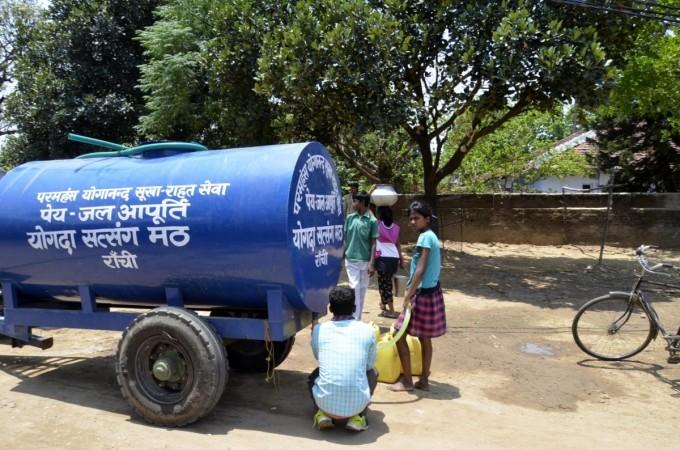
Unless the Bengaluru water crisis gets better with concerted efforts, it'll most likely get a lot worse this summer. Drying up borewells, increased demand and receding water tables are ominous of crippling water shortages in the entire region, the kinds where the daily bath needs to be contemplated and watering the plants can attract penalties.
Bangalore Apartment's Federation, a community of resident welfare association, in partnership with Citizen Matters and Open City conducted a rapid survey on water tanker usage patterns in Bengaluru.
Among the quick insights include the wide disparity in tanker prices across the residences. The Bengaluru Water Tankers Survey, February 2024, "aims to collect data from RWAs on how much a tanker of water costs in different parts of the city." The aim of the survey, still an ongoing one, is to understand how the spending varies across the city and get a clearer idea of the demand for groundwater in the City.
Water Tankers —The need of the hour
Water Tankers bridge a huge gap between demand and supply of water in the city, catering to almost 25% of the demand for water. Furthermore, it is estimated that 20% of the Bnagaloreans depend on private tanker operators for drinking water. Reportedly, the rates ate likely to go over double the normal rates during peak summer.

With the surge in demand comes the disparity in price of these tankers. According to the survey, the median water tanker rate in the city is Rs 131/1,000L and Rs 800 for 6,000L. The survey further says that the rates seem to be lowest at electronic city less than Rs 100/1,000L. "Moving outwards, rates go up towards Horamvu in the NE, they pay at Rs 207/1,000L." It is RR Nagar and adjacent areas that contend with the steepest rates at Rs 238/1,000L.
The insights shared by people from different parts of the city also shows that there's been Zero Cauvery Water Supply from the last one and half months Borewell Road, Nallurhalli Whitefield. "Typically our reliance on water tankers is minimal, usually limited to just a month during the summer. However, this year, we've had to start using them as early as February," the survey tells us.
Cauvery Pipeline, mere lipservice?
The residents also share in the survey, that there has been no water supply from BWSSB till date even though Cauvery pipeline was laid in October 2017. "Government keeps extracting money for managing STP and WTP plants with 18%GST. Feels like the government is exploiting apartments without providing basic services. If anything happens while managing the STP MTP plant then MC will be sent to jail."
The problem lies in ground basics
Migration, unbridled construction, deterioration of the lake ecosystem and white topping of roads have preponed the crisis and increased it exponentially. Most importantly, the development authorities missed a key fact all along. Generally, metro or mega cities are either next to a sea or river, which is not the case with Bengaluru. But unsustainable development, migration and construction have continued as is the case with metro cities next to a water body. For water demand of Bengaluru to be fulfilled, there is a need to pump water from 100 kms below, making it an expensive and unsustainable affair.
The tanker cartel?
Quick profiteering out of water tanks needs to be regulated. Residents have often raised their voice and issues on social media. There needs to be a cap on the price of water tankers. Government, ideally, must step in and take over. Reportedly, water tankers which were earlier available for Rs 700-Rs 800 per tanker now carry an asking price of Rs 2,000-Rs3,000 per tanker.
There have been reports of water tankers drawing water from borewells in water surplus areas and supplying them to Bangalore South regions at hefty prices. The sustainable unregulated trend has resulted in water shortage in pretty much all the areas.
Suggestions include - Conservation efforts and infrastructure development need to be taken up simultaneously. Cauvery Phase 5 project needs to be made functional as soon as possible. BWSSB needs to broaden its jurisdiction. Currently in-charge of just supply of Cauvery water and sewerage in the city, it needs to take over lakes, storm water drains, aquifers so as one institution can regulate all aspects related to water in the city. Ironically, the city of 1,000 lakes is drying up, with its residents parched and scrambling for daily water needs.









